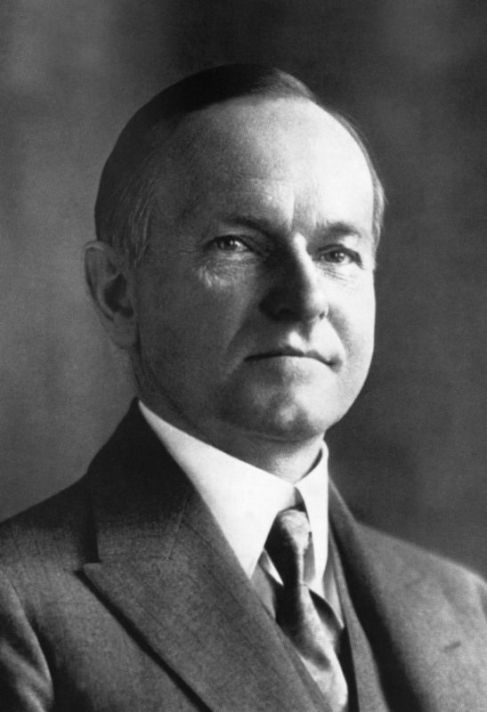In Robert A. Woods’ fascinating little book entitled, “The Preparation of Calvin Coolidge,” the author recounts the numerous ways Coolidge advanced American labor. Coolidge backed policies that improved conditions for everyone, not merely one interest group over that of another. Through cutting state executive government down from 120 agencies to 19, Coolidge enabled the people of Massachusetts to keep more of their wages every week for themselves instead of sending up increasing quantities in taxes to Boston. He supported the decrease of work hours because it helped those who worked…not simply those who led unions, even though, ironically, it originally had the firm opposition of organized manufacturers. Known for his principled stand for law and order, he not only backed Commissioner Curtis for refusing to reinstate 19 police officers after they led most of the department on strike in September 1919. Having become affiliated with the American Federation of Labor, in violation of long-standing department regulations, their duty to the public became secondary to an ideological allegiance that already brought them in conflict with their sworn obligation.
Any or all of these three instances could have alienated political friends, forced Coolidge out of office or worse, led to a violent series of repercussions around the state, even the country.
1919 was hardly a peaceful year, despite the War’s end. But this was not all he encountered since the Lawrence textile and phone operators strikes could have blown into larger conflicts as well. They did not spiral out of control principally because of sound leadership. It is through good leadership that complex and seemingly insurmountable obstacles are resolved with clear and consistently applied principles. Coolidge, known by everyone for his fairness, gave partiality to none. He adhered to the law, even when it might cost him personally or politically. As such, he gained the support of those who saw past the bias and political agendas of those calling for violence, social upheaval, nationwide strikes and economic change for its own sake.
He continually lauded the glory of work. As Coolidge would observe on Labor Day in 1919, “Workmen’s compensation, hours and conditions of labor are cold consolations, if there be no employment. And employment can be had only if some one finds it profitable. The greater the profit, the greater the wages.” Such a truth needs no clearer illustration than where we stand in September 2013. If only the realization of Coolidge’s day, that “we can take from one class and give to another class” is never going to fix the problem. The problem only aggravates, as it did then, when class warfare rhetoric convinces Americans to expect fairness without freedom for all and benefits without the work to earn them.
Coolidge recognized the right to form unions by mutual agreement. Without consent, both unions and arbitration of disagreements were impossible to reconcile “with the right of individual freedom,” which could never be surrendered to any effort to equalize labor. He saw a clear distinction of responsibility when it came to those performing a service to the public, be it policemen, telephone operators or (in Reagan’s case) air traffic controllers.
This is why Coolidge told labor leaders on September 1, 1924, “Of course employment affecting public safety and public necessity is not private employment, and requires somewhat different treatment.” Those who work in public unions are not simply serving themselves, as Coolidge said on April 21, 1919, “There is another principle involved which has received very little attention, and that is the obligation that exists on those who enter the public service to continue to furnish such service even at some personal inconvenience. This obligation reaches to the highest officer or government official to the humblest employee. The public has rights which cannot be disregarded.” Such is why Coolidge endorsed resolution by peaceful arbitration — not the coercion of strikes, violence and disregard of law and orderly behavior — when disagreements occur. The “us” versus “them” rhetoric only proved increasingly hollow as tax reduction and constructive economy revealed the property owners and the laborer to be one and the same.
The emphasis on what one is entitled, rather than what one owes, misses both the importance and increased opportunity hard work affords to each person. No short cut exists. One cannot demand the fruits of toil without the effort to acquire them. The welfare of all, made clear from the earliest experiments in socialism by Plymouth colony, is never achieved by the many enjoying the rewards earned by a few. Work and the ability to keep its results have proven, through centuries of human experience, to be the means toward progress, the agency of mutual prosperity, and the continuance of civilization.
It is why Coolidge, in his address to the leaders of labor, said this,
“America recognizes no aristocracy save those who work. The badge of service is the sole requirement for admission to the ranks of our nobility. These American policies should be continued. We have outlawed all artificial privilege. We have had our revolution and our reforms. I do not favor a corporation government, a bank government, a farm government or a labor government. I am for a common-sense government by all the people according to the American policy and under the American Constitution. I want all the people to continue to be partakers in self government.”
With Coolidge, his actions matching his words, we can know that he meant it.

Reblogged this on The Importance of the Obvious and commented:
“One of the greatest mysteries in the world is the success that lies in conscientious work…Our country does not believe in idleness. It honors hard work” — Calvin Coolidge, The Autobiography, p.100, 243. America cannot honor the worker and believe in indolence or sloth at the same time. Work is the prerogative of intelligence, as Cal said, and no nation can embrace idleness and survive.